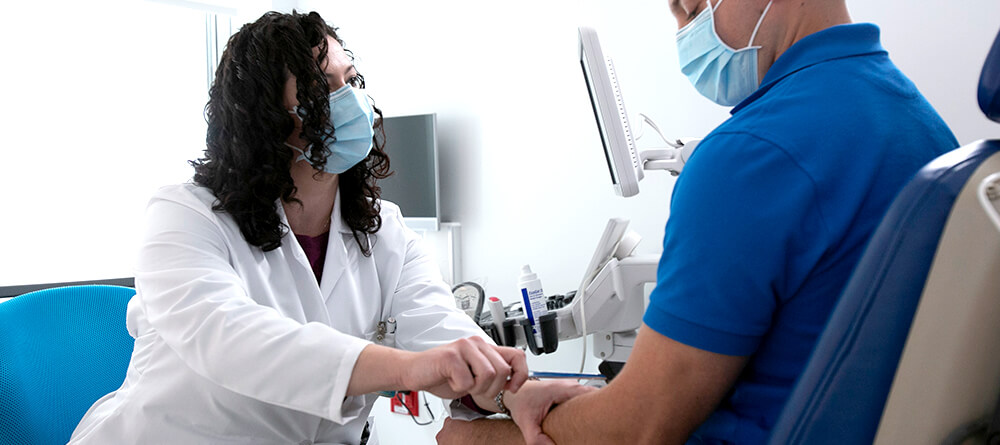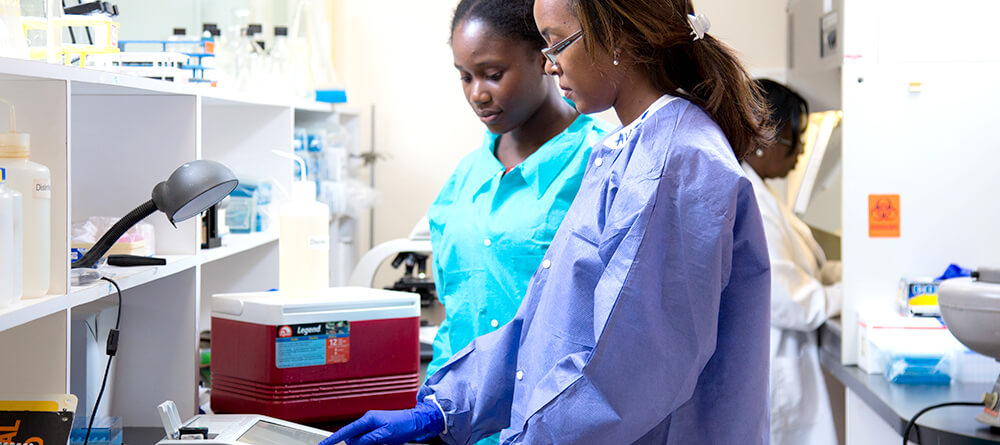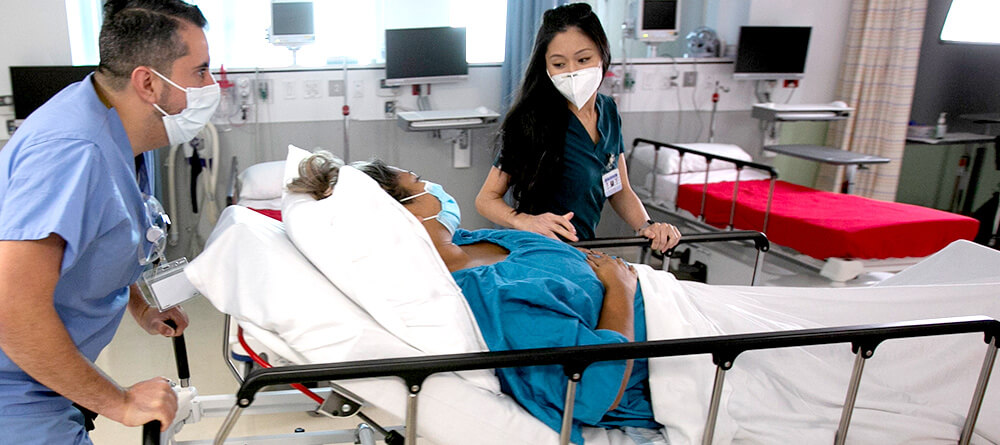July 18, 2022
It requires some serious intelligence and motivation to get accepted into medical school. As students work their way toward becoming practicing physicians, they develop even more qualities that equip them to be successful in the field.
So what makes a good doctor?
To find out, we spoke with a few physicians to learn more about what makes a quality doctor—and it’s not your medical school GPA. Their insight can help you better understand what it is that distinguishes a great physician and if you would want to be a doctor.
7 Essential qualities of a good doctor
Being a great physician requires more than high exam scores and knowledge of medical terms. Learn about the lesser-known characteristics the best doctors share.
1. Good doctors are good communicators
“Being a good listener is critical to being a good doctor,” says Dr. John Madden, an Emergency Physician and Director of the Office of Career Guidance and Student Development at St. George’s University (SGU) School of Medicine. “Patients will tell you what’s wrong if you just let them speak.”
“Being a good listener is critical to being a good doctor.”
After all, good communication isn’t just for being friendly with patients. It’s also one of the most vital doctor skills because it helps physicians to understand their patients’ concerns and explain a diagnosis.
“They should answer questions using language that is clear without using too much medical terminology,” says Dr. Lisa Doggett, a family physician. “They should be honest but also offer hope, even when a situation is difficult. And they should help their patients feel empowered to improve their own health.”
2. Good doctors are organized and conscientious
Children are taught from a young age to practice organization in order to be successful in school. And for good reason — one can’t succeed in medicine without presence of mind and being vigilant about details.
“A doctor needs to make sure that her patients get recommended screening tests, that their questions are answered, and that patients have a clear plan of action upon leaving her office,” says Dr. Doggett. “She must be vigilant about following up on any tests that are done and communicating those results.”

3. Good doctors are empathetic and make patients feel cared for
Patients don’t care about their physician’s medical school grades or other accolades—they want to feel that they are in good hands. A good doctor knows how to make a patient feel as though they are being cared for, that their concerns are valid, and that they are being heard.
“The patient isn’t just a list of medical problems and medications.”
“Patients care more that their doctor actually cares for them than how many papers they’ve published,” says Dr. Edna Ma, an anesthesiologist at 90210 Surgery Medical Center. “Caring can be in the form of active listening and asking open-ended questions.” This doesn’t need to be limited to the reason for the visit, either. “The patient isn’t just a list of medical problems and medications,” Dr. Ma adds.
4. Good doctors are curious
When presented with befuddling symptoms, a good doctor should allow their inherent curiosity to lead them to an accurate diagnosis, even if it means tapping into additional resources.
“That may require extra research, reaching out to colleagues, or taking more time to gather a detailed history from the patient,” Dr. Doggett says. Taking these extra measures is important, she elaborates, to avoid making incorrect diagnoses.

5. Good doctors are collaborative
Being a good communicator is critical not only for working with patients but also for relaying information across the health care system. Consider that when a patient goes to the hospital, their primary care physician often doesn’t learn of their visit unless they are informed by the patient or a family member.
“A good hospital-based doctor will call or send a note to the primary care physician to let them know the patient has been admitted,” Dr. Doggett explains. “The primary care doctor should then make an effort to gather hospital records and offer timely follow-up after discharge.” Similarly, a good medical specialist will involve a patient’s primary care doctor in any diagnoses or treatments.
6. Good doctors are persistent in advocating for their patients
Good doctors do whatever it takes to help meet their patients’ needs. Whether that means helping them navigate the health care system by finding specialists or acquiring the prescriptions they need, they should be willing to provide that support.
“A good doctor will be a strong advocate for their patients,” Dr. Doggett notes. She says this can entail helping patients in getting prescription medicine, securing an urgent appointment, enrolling in a patient assistance program, or accessing necessary services like physical therapy. The best doctors are willing to go the extra mile for their patients’ well-being.

7. Good doctors have great bedside manner
Good bedside manner is more of an approach and combination of skills than anything, but Dr. Madden says it’s what separates a great physician from a good one. “Physicians should be personable, great listeners, and empathetic to the concerns of their patients,” he elaborates. “They should not be condescending or arrogant. They should treat others as they want to be treated.”
“Physicians should be personable, great listeners, and empathetic to the concerns of their patients.”


